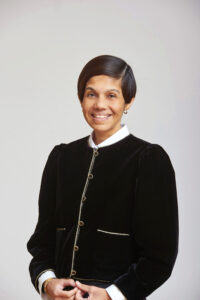Professor Suzanne Rab Takes a Critical Look at Critical Thinking

By Professor Suzanne Rab
Critical thinking is a vital skill at university, and in life. Despite its frequent endorsement in education, there is no clear consensus about what it means in practice. Rather like the elusive search for a definition of obscenity[1], “we know it when we see it”. But it can be hard to define what critical thinking is and even harder to nurture this skill. I will focus on some reflections from the 2021 Level One Law Conference where I presented this topic to students transitioning to level two law studies.
The term ‘critical’ comes from the Greek word ‘kritikos’ meaning discerning. So, critical thinking is a deeper kind of thinking in which we do not take things for granted but where we question, analyse and evaluate what we read, hear, say or write. It is a general term used to identify mindsets, skills and behaviours that contribute to effective decision-making.
Before looking at a definition of critical thinking, it is helpful to emphasise what it is not. It is not an automatic response; it is not attained overnight (it requires practice and hard work) and it is not simply being (highly) critical of everyone else’s thinking but your own.
However, it is useful to try to define it (if only to illustrate the limitations of definitions which are not ends in themselves). I find helpful the working definition that: “Critical thinking is, in short, self-directed, self-disciplined, self-monitored, and self-corrective thinking. It presupposes assent to rigorous standards of excellence and mindful command of their use. It entails effective communication and problem solving abilities and a commitment to overcome our native egocentrism and sociocentrism.” (Paul and Elder, 2008).
I try to encourage students not to trust your first response by using an easy puzzle that invites an answer that is intuitive, appealing and wrong:
A bat and a ball cost £1.10
The bat costs £1 more than the ball
How much does the ball cost?
The intuitive answer that immediately springs to mind is “10p” About 80% of university students give the answer “10p”. BUT it is wrong!
If the ball were to cost 10p, the bat would cost £1.10 (i.e. £1 more), and then the total cost would be £1.20, rather than the required £1.10. The correct response is “5p” (i.e. the bat costs £1.05). The explanation for the widespread “10p” bias is that people substitute the critical relational “more than” statement by a simpler absolute statement. That is, “the bat costs £1 more than the ball” is read as “the bat costs £1”. Hence, rather than working out the sum, people naturally separate £1.10, into £1 and 10p, which is easier to do. People are over-confident and it takes time and effort to think and check.
The puzzle is taken from Kahneman in Thinking, Fast and Slow adapted for a UK audience where the bat and ball problem is used as an introduction to the major theme of the book: the distinction between fluent, spontaneous, fast ‘System 1’ mental processes, and effortful, reflective and slow ‘System 2’ ones. The explicit lesson is that we are too willing to lean on System 1, and this gets us into trouble.
Critical thinking done well meets high standards of reasoning. Universal intellectual standards are standards which when applied to thinking provides a means of checking the quality of reasoning about a problem, issue, situation, or question. Thinking critically entails knowledge and application of the standards: clarity, accuracy, precision, relevance, depth, breadth, logic, significance, and fairness.
If students are ambivalent about critical thinking, it can be helpful to anchor its value in the world beyond academic study. Critical reasoning tests, also known as critical thinking tests (CTTs), are psychometric tests commonly used in graduate, professional and managerial recruitment. These high-level analytical tests are most commonly encountered in the legal sector, but other organisations such as the Bank of England also use them as part of their selection process. I have found it useful to explain the relevance of critical thinking beyond university studies, in terms of employment opportunities in law and elsewhere and in life more generally where critical thinking is indispensable to thrive.
[1] The phrase was used in 1964 by United States Supreme Court Justice Potter Stewart to describe his threshold test for obscenity in Jacobellis v. Ohio, 378 U.S. 184 (1964).
This blog represents the views of the individuals, not SCiLAB or the Open University.
References
- Paul, R. and Elder, L. (2008) The Miniature Guide to Critical Thinking Concepts and Tools. Santa Barbara: Foundation for Critical Thinking Press.
Useful websites
- Bloom’s Taxonomy
- Foundation for Critical Thinking
- Learn Higher
- Mind maps
- Universal Intellectual Standards
Further reading
- Kahneman, D. (2011) Thinking, Fast and Slow. New York: Farrer, Straus and Giroux.
- Novak, J. and Canas, A. (2008) ‘The Theory Underlying Concept Maps and How to Construct and Use Them’. (Accessed: 25 March 2022).
- Quality Assurance Agency for Higher Education (2014) The Frameworks for Higher Education Qualifications of UK Degree-Awarding Bodies. (Accessed: 25 March 2022).

Professor Suzanne Rab
Professor Suzanne Rab is an associate lecturer at the OU and a barrister at Serle Court Chambers. She maintains a number of academic positions including at the University of Oxford and Brunel University London. Suzanne has wide experience of EU law and competition law matters combining cartel regulation, commercial practices, IP exploitation, merger control, public procurement and State aid. Suzanne’s practice has a particular focus on the interface between competition law and economic regulation. She advises governments, regulators and businesses across the regulated sectors including in the communications, energy, financial services, healthcare/ pharmaceuticals, TMT and water sectors. Suzanne has significant experience of advising on the development, implementation and application of new competition laws and regulatory regimes in line with international best practices, including in emerging markets. She is a member of the UK Regulators Network (UKRN) Expert Advisory Panel. Suzanne Rab was recognised by The Lawyer as one of the “Hot 100” lawyers for 2022, most notably for her work for public bodies including in relation to net zero, competition law and subsidy control.

Blog posts
- Rethinking Tuition: Reflections from the Staff Tutor / Student Experience Manager (SEM) Symposium, 4-5 December 2024 6th June 2025
- ‘Hitting the keyboard’ : Exploring student feelings and approaches to developing legal research skills 9th May 2025
- From Feedback to Action: The Student Voice Festival in Law Education 15th April 2025
